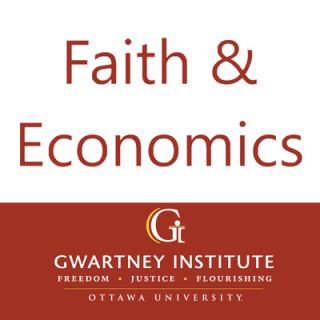

In this week's show, the Gwartney team argues against central planners by examining the economic freedom scores of different countries. Specifically, these are countries that were formed after the split of the Soviet Union. Some of these countries, like Poland, chose to pursue free-market economics, while others, such as Ukraine, continued economic central planning. Essentially, as the team points out, we are able to witness a natural experiment, does free-market economics make a country better off? Could economic freedom deter Russia? Join the show now!
Timeline:
Two ways to organize oneself - market or central / 1:30
No profit motive / 5:00
Unforeseen opportunity costs / 8:40
Incentive challenges for the Soviet Union / 11:30
Shock therapy / 16:45
Per-Capita income / 26:40
What's the data saying? / 32:30
Does the free market create better outcomes? /37:00
Don Levoy- National Economic Planning: What is Left
Milton Friedman- I Pencil
freetheworld.com
Frasier Institute